Discover The Indicator from Planet Money
The Indicator from Planet Money

The Indicator from Planet Money
Author: NPR
Subscribed: 62,611Played: 8,631,127Subscribe
Share
© Copyright 2015-2021 NPR - For Personal Use Only
Description
A bite-sized show about big ideas. From the people who make Planet Money, The Indicator helps you make sense of what's happening in today's economy. It's a quick hit of insight into money, work, and business. Monday through Friday, in 10 minutes or less.
1750 Episodes
Reverse
2025 was a wild year for the U.S. economy. Tariffs transformed the global economy, consumer sentiment hit near-historic lows, and the stock market hit scary, spooky, blood-curdling new heights! So … which of these economic stories defined the year? Our hosts from Planet Money and The Indicator duke it out during our annual … Family Feud!Tell us who you think has THE indicator of the year by emailing us at indicator@npr.org. Put “Family Feud” in the subject line. Related episodes:The Indicators of this year and next This indicator hasn’t flashed this red since the dot-com bubble What would it mean to actually refund the tariffs?For sponsor-free episodes of The Indicator from Planet Money, subscribe to Planet Money+ via Apple Podcasts or at plus.npr.org. Fact-checking by Corey Bridges. Music by Drop Electric. Find us: TikTok, Instagram, Facebook, Newsletter. Learn more about sponsor message choices: podcastchoices.com/adchoicesNPR Privacy Policy
After a firehose of economic news in 2025, we wanted to check back on some of the people we’ve heard from on our show. Today, we check in with a former federal employee caught in the Trump administration's wood chipper, a Louisiana shrimper on Trump’s tariffs and an update on a financial aid scam. Related episodes: Why do shrimpers like tariffs? What’s the long-term cost of federal layoffs? A big bank’s mistake, explained For sponsor-free episodes of The Indicator from Planet Money, subscribe to Planet Money+ via Apple Podcasts or at plus.npr.org. Fact-checking by Sierra Juarez. Music by Drop Electric. Find us: TikTok, Instagram, Facebook, Newsletter. Learn more about sponsor message choices: podcastchoices.com/adchoicesNPR Privacy Policy
Absent a holiday miracle, premium subsidies for the Affordable Care Act are set to expire at the end of this year. This will greatly increase the cost of health insurance for many who rely on the marketplace for their coverage. Today on the show, we are visited by the ghosts of Obamacare past, present and future to learn what’s next for this landmark healthcare legislation.Related episodes: Is Obamacare doomed without extended subsidies?The hidden costs of healthcare churnHow doctors helped tank universal healthcareFor sponsor-free episodes of The Indicator from Planet Money, subscribe to Planet Money+ via Apple Podcasts or at plus.npr.org. Fact-checking by Sierra Juarez. Music by Drop Electric. Find us: TikTok, Instagram, Facebook, Newsletter. Learn more about sponsor message choices: podcastchoices.com/adchoicesNPR Privacy Policy
The One Big Beautiful Bill Act made a lot of changes to the federal student loan system. One of those changes put a new cap on the amount of loans students in graduate school can take on. Today on the show, we explain the theory behind this change and how it could impact the broader labor market going forward.Related episodes: The Market For Student LoansHere's why Black students are defaultingStudent loans are back, U.S. travel is whack, and AI — please, step backFor sponsor-free episodes of The Indicator from Planet Money, subscribe to Planet Money+ via Apple Podcasts or at plus.npr.org. Fact-checking by Sierra Juarez. Music by Drop Electric. Find us: TikTok, Instagram, Facebook, Newsletter. Learn more about sponsor message choices: podcastchoices.com/adchoicesNPR Privacy Policy
Cities like Austin and Atlanta used to top lists of places people moved to looking for relatively affordable places to live. Until, one day, they weren’t that affordable. On today’s show, how a low cost of living is threatened by growth, and how one sunbelt city in Alabama is planning ahead. Related episodes: Why Americans don’t want to move for jobs anymore How to build abundantly How big is the US housing shortage? The highs and lows of US rents For sponsor-free episodes of The Indicator from Planet Money, subscribe to Planet Money+ via Apple Podcasts or at plus.npr.org. Fact-checking by Sierra Juarez. Music by Drop Electric. Find us: TikTok, Instagram, Facebook, Newsletter. Learn more about sponsor message choices: podcastchoices.com/adchoicesNPR Privacy Policy
It’s … Indicators of the Week! Our weekly look at some of the most fascinating economic numbers from the news. On today’s episode: Nvidia chips OK’d for China, a sticky frozen Russian asset situation, and a lot of you seem to be stealing from self-checkout. Related episodes: The tower of NVIDIA How to get Russia to pay Ukraine Why the U.S. cut China off from advanced chipsFor sponsor-free episodes of The Indicator from Planet Money, subscribe to Planet Money+ via Apple Podcasts or at plus.npr.org. Fact-checking by Sierra Juarez and Corey Bridges. Music by Drop Electric. Find us: TikTok, Instagram, Facebook, Newsletter. Learn more about sponsor message choices: podcastchoices.com/adchoicesNPR Privacy Policy
You may be familiar with the AI-fueled stock market boom. Well, former International Monetary Fund Chief Economist Gita Gopinath warns it could mirror the dot-com boom of the late 1990s. But worse. She calculates a similar crash could erase $35 trillion in global wealth. Today on the show, what would that mean for the US and global economies? Related episodes: This indicator hasn’t flashed this red since the dot-com bubble Open AI’s deals are looking a little frothyFor sponsor-free episodes of The Indicator from Planet Money, subscribe to Planet Money+ via Apple Podcasts or at plus.npr.org. Fact-checking by Sierra Juarez. Music by Drop Electric. Find us: TikTok, Instagram, Facebook, Newsletter. Learn more about sponsor message choices: podcastchoices.com/adchoicesNPR Privacy Policy
If you want to make Bitcoin, you need powerful computers and a lot of energy. Well, it turns out the same infrastructure needed for Bitcoin mining is pretty valuable in the era of AI. Today on the show, why some miners are starting to throw in the towel on crypto in favor of supporting AI infrastructure. Related episodes: Whose financing Meta’s massive AI Data Center?This indicator hasn’t flashed this red since the dot-com bubbleFor sponsor-free episodes of The Indicator from Planet Money, subscribe to Planet Money+ via Apple Podcasts or at plus.npr.org. Fact-checking by Sierra Juarez. Music by Drop Electric. Find us: TikTok, Instagram, Facebook, Newsletter. Learn more about sponsor message choices: podcastchoices.com/adchoicesNPR Privacy Policy
Federal Reserve is meeting to make its interest rate decision after the government shutdown delayed key economic data. Today on the show, we talk to the former Vice Chair of the Fed, Lael Brainard, about what she would do with interest rates in this critical yet foggy economic moment.Related episodes: A little doomsday feeling is weighing on the economyCan ... we still trust the monthly jobs report?For sponsor-free episodes of The Indicator from Planet Money, subscribe to Planet Money+ via Apple Podcasts or at plus.npr.org. Fact-checking by Sierra Juarez. Music by Drop Electric. Find us: TikTok, Instagram, Facebook, Newsletter.Learn more about sponsor message choices: podcastchoices.com/adchoicesNPR Privacy Policy
In November, the U.S. stopped production of the humble penny after 232 years in circulation. On today’s show, a former U.S. Mint director shares the fiscal math that doomed the penny, and an artist pay tribute to this American icon. View more of Robert Wechsler’s artwork here. Related episodes: What’s the deal with the platinum coin? For sponsor-free episodes of The Indicator from Planet Money, subscribe to Planet Money+ via Apple Podcasts or at plus.npr.org. Fact-checking by Corey Bridges. Music by Drop Electric. Find us: TikTok, Instagram, Facebook, Newsletter. Learn more about sponsor message choices: podcastchoices.com/adchoicesNPR Privacy Policy
It’s … Indicators of the Week! Our weekly look at some of the most fascinating economic numbers from the news. On today’s episode: A big goshDRAM memory problem, a holiday spending mystery, and apartment rental prices … decline?! Related episodes: The highs and lows of US rents Taking the temperature of the US consumer We Buy A Lot Of Christmas TreesFor sponsor-free episodes of The Indicator from Planet Money, subscribe to Planet Money+ via Apple Podcasts or at plus.npr.org. Fact-checking by Corey Bridges and Julia Ritchey. Music by Drop Electric. Find us: TikTok, Instagram, Facebook, Newsletter. Learn more about sponsor message choices: podcastchoices.com/adchoicesNPR Privacy Policy
It is a special edition of the Beigies Awards where one regional Federal Reserve Bank will receive lifetime achievement recognition. Today on the show, we speak to its President about the value of economic anecdotes.Related episodes: What keeps a Fed president up at nightUsing anecdotes to predict recessionsFor sponsor-free episodes of The Indicator from Planet Money, subscribe to Planet Money+ via Apple Podcasts or at plus.npr.org. Fact-checking by Tyler Jones. Music by Drop Electric. Find us: TikTok, Instagram, Facebook, Newsletter. Learn more about sponsor message choices: podcastchoices.com/adchoicesNPR Privacy Policy
Sanae Takaichi was sworn in as Japan’s first female prime minister a little over a month ago, and she’s already making waves in the East and West. The first priority for the people of Japan is if her government can fix the country’s cost-of-living problem. Today on the show, we break down what Sanaeonomics could mean for the Land of the Rising Sun.Related episodesHow Japan is trying to solve the problem of shrinking villagesJapan had a vibrant economy. Then it fell into a slump for 30 yearsFor sponsor-free episodes of The Indicator from Planet Money, subscribe to Planet Money+ via Apple Podcasts or at plus.npr.org. Fact-checking by Sierra Juarez. Music by Drop Electric. Find us: TikTok, Instagram, Facebook, Newsletter. Learn more about sponsor message choices: podcastchoices.com/adchoicesNPR Privacy Policy
Tariffs are bringing in some serious cash into the US Treasury’s pocket. The problem with that money is that it may need to be refunded. A case in front of the Supreme Court could declare several of Trump’s tariffs illegal, which would prompt a return of billions of dollars. Today on the show, we look at how that would work and why the process will likely not be easy. Related episodes: Three ways companies are getting around tariffsDays of our tariffsFor sponsor-free episodes of The Indicator from Planet Money, subscribe to Planet Money+ via Apple Podcasts or at plus.npr.org. Fact-checking by Sierra Juarez. Music by Drop Electric. Find us: TikTok, Instagram, Facebook, Newsletter. Learn more about sponsor message choices: podcastchoices.com/adchoicesNPR Privacy Policy
Why can't the US be like Europe, Japan or India—countries that all have extensive passenger train systems? On today's show, why the US chose not to. We learn why, despite this, US railroads could still be worth bragging about.Related episodes: What happens when railroads get hitchedHow three letters reinvented the railroad businessFor sponsor-free episodes of The Indicator from Planet Money, subscribe to Planet Money+ via Apple Podcasts or at plus.npr.org. Fact-checking by Sierra Juarez. Music by Drop Electric. Find us: TikTok, Instagram, Facebook, Newsletter. Learn more about sponsor message choices: podcastchoices.com/adchoicesNPR Privacy Policy
Public sector economics is a fundamental piece of the discipline. So we wanted to give our hosts an opportunity to put their knowledge to the test in a game we’re calling Indicator Quizbowl. Today on the show, Wailin and Darian go head to head to see who the bigger public policy nerd is.Related episodes: Could cash payments ease recessions?A trap-loving DJ takes on economicsFor sponsor-free episodes of The Indicator from Planet Money, subscribe to Planet Money+ via Apple Podcasts or at plus.npr.org. Fact-checking by Sierra Juarez. Music by Drop Electric. Find us: TikTok, Instagram, Facebook, Newsletter.Learn more about sponsor message choices: podcastchoices.com/adchoicesNPR Privacy Policy
In a rural pocket of northeastern Louisiana, Meta is building a $30 billion data center called Hyperion. But it’s not being completely financed with Meta’s own money. Today on the show, the opaque system of AI data center financing and why it’s fueling fears of a bubble.
Related episodes: OpenAI’s deals are looking a little frothy No AI data centers in my backyard! What $10B in data centers actually gets you For sponsor-free episodes of The Indicator from Planet Money, subscribe to Planet Money+ via Apple Podcasts or at plus.npr.org. Fact-checking by Sierra Juarez. Music by Drop Electric. Find us: TikTok, Instagram, Facebook, Newsletter. Learn more about sponsor message choices: podcastchoices.com/adchoicesNPR Privacy Policy
President Trump has said he’d try to get more Argentine beef into the U.S. So who would actually do the buying? That’s a general theme with a lot of these trade deals — big numbers but vague details. When China says it’ll buy more soybeans, is it the government or companies that does the buying? When South Korea promises to invest in American shipyards, who’s actually doing that? Today on the show, we dig into two questions from listeners and hear directly from an Argentine butcher. Related episodes: Why beef prices are so highHow the South is trying to win the EV race For sponsor-free episodes of The Indicator from Planet Money, subscribe to Planet Money+ via Apple Podcasts or at plus.npr.org. Fact-checking by Sierra Juarez. Music by Drop Electric. Find us: TikTok, Instagram, Facebook, Newsletter. Learn more about sponsor message choices: podcastchoices.com/adchoicesNPR Privacy Policy
It’s … Indicators of the Week! Our weekly look at some of the most fascinating economic numbers from the news. On today’s episode: the effects of pay transparency, Meta’s big win, and freaky flies and beef. Related episodes: Are we entering a new dawn for antitrust enforcement? Why beef prices are so high For sponsor-free episodes of The Indicator from Planet Money, subscribe to Planet Money+ via Apple Podcasts or at plus.npr.org. Fact-checking by Sierra Juarez. Music by Drop Electric. Find us: TikTok, Instagram, Facebook, Newsletter. Learn more about sponsor message choices: podcastchoices.com/adchoicesNPR Privacy Policy
When people lose their homes to wildfire, hurricanes or flooding, they're eager to rebuild. But scammers are also ready to take advantage. On today’s show, the lucrative business of contractor fraud and advice on how to avoid them. Related episodes:An indicator lost: Big disaster costs When insurers can’t get insurance Selling safety in the fight against wildfires For sponsor-free episodes of The Indicator from Planet Money, subscribe to Planet Money+ via Apple Podcasts or at plus.npr.org. Fact-checking by Corey Bridges. Music by Drop Electric. Find us: TikTok, Instagram, Facebook, Newsletter. Learn more about sponsor message choices: podcastchoices.com/adchoicesNPR Privacy Policy




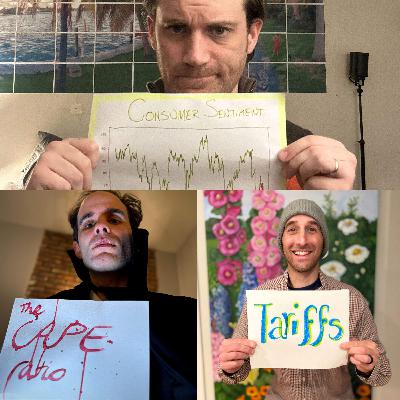
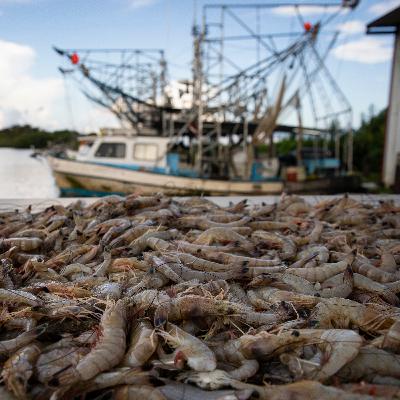
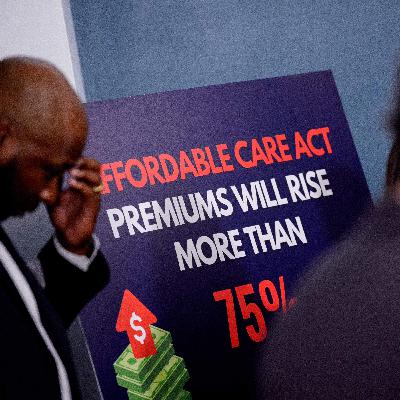
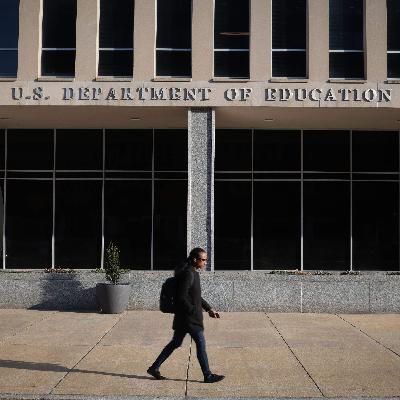

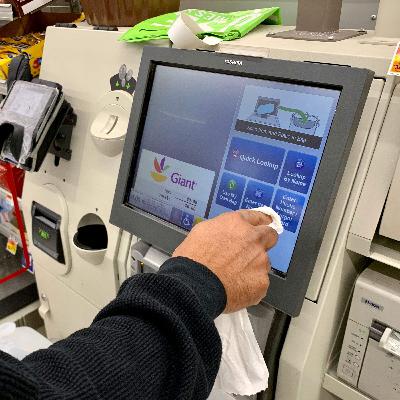
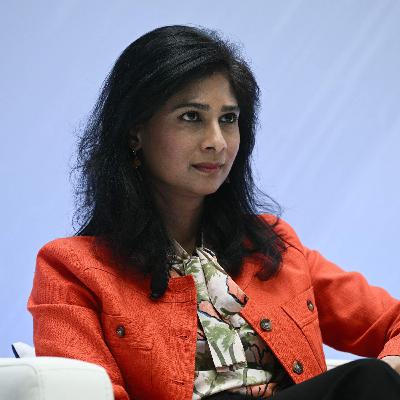
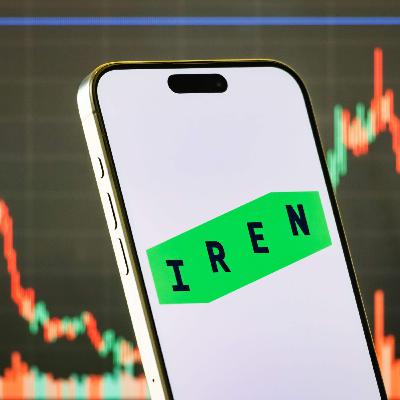
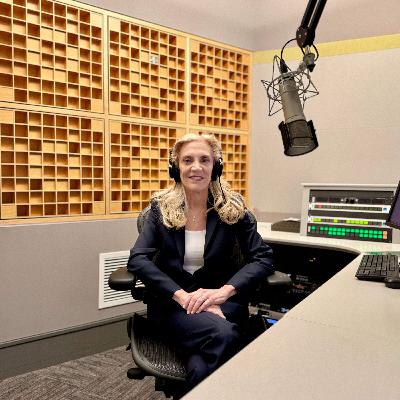




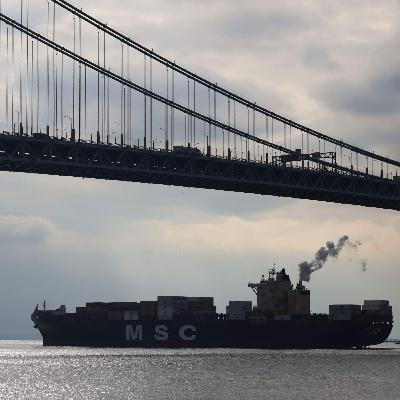

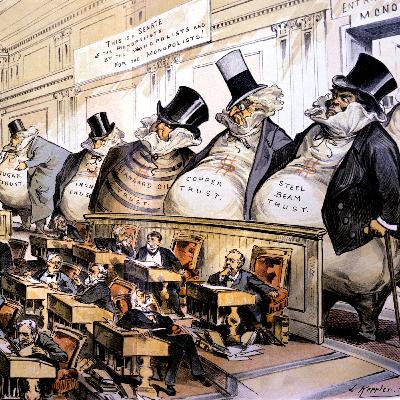



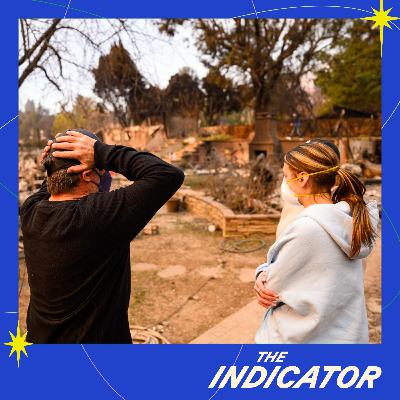



💡
As we know, the world becomes globally and there are huge ways of earning. Visit this website https://apkkit.net/ where you'll find plenty of options for easy earning from your phone.
🖼️
🐟
a bit too woke to be considered journalism
Hahaha they skirted around the elephant so much
Lots of data for comparison in this episode! Increased used car costs = ☹️. I love my current vehicle - as a model that is no longer produced, I hope it goes strong for more years on several levels! 🚗
"A guy who trusts his gut, knows very little, studies not at all, and is adverse to taking advice from almost everyone." 👀👀👀
9:28.. what is.she scared of? really!!?!?
please stop calling it liberation day. if we have to call it by a name then Doofus Day would be more accurate.
🚗
1. People have short attention span, and 2. Random acts of violence, while they do happen, are rare as a regular occurrence in the same tourist destination.
Very good points about why there aren't water pipelines across the entire country to easily funnel from water-rich locations. A good example of the benefits and challenges of having many small systems rather than a monopoly. ⛲
Video games have become more accessible than ever, thanks to advancements in technology, inclusive designs, and widespread internet connectivity. From mobile gaming apps to sophisticated console platforms, the industry caters to players of all ages and abilities. Accessibility features such as customizable controls, text-to-speech options, and visual aids ensure that gaming can be enjoyed by everyone, including those with disabilities. Moreover, websites like https://mtcheck.org/ provide valuable resources and insights for players, helping them make informed decisions about their gaming preferences and experiences. This evolution underscores the growing emphasis on inclusivity and the importance of bridging the gap for all types of gamers worldwide.
Cost transparency is important, and the funeral industry should do better. Similarly, reports are coming out this week of many hospitals that are failing to provide clear costs. Why can't we at least know the financial ramifications of literal life and death experiences?
Financial literacy - understanding both macro and micro processes - is rare, so teaching kids early will hopefully benefit those individuals and eventually the communities where they live.
Who is clamoring for Fire Festival 2? 🤨
Good for FIU and Pitbull- hope he gets to do something extra fun with his 10 days/year!
Malcolm Gladwell wrote about the advantages of being the older individuals in a cohort and how they are often more successful. Even so, "reclassing" is an interesting rebrand of "being held back" and if the ONLY reason it's happening is to give a false athletic advantage that seems really short-sighted.
More than 10 minutes into an 11 minute. podcasts we finally get to "in other studies the results are mixed." indeed.